#arc: institutional lies
Text
Erik is a metaphor for the Monarchy
This season has given me so much to think about Erik and Wilhelm's idolization of Erik, and how it plays a dual role in Wilhelm's arc as a character.
I think Erik represents Wilhelm's motivation to carry forward the legacy of an institution which is slowly crumbling in its relevance (in the fictional Sweden atleast, I have no idea about the geopolitical scenario of the real-life monarchy in Sweden). Yes, Wilhelm does come from a lineage of a family relevant in history, but not only he is too young to understand that burden but he is also someone who does not feel a personal connection with that burden, unlike August(which ironically also stems from his love for his father). But he does feel that personal connection to Erik, not only because they are brothers but also Erik seems to be the only one Wilhelm can fully be vocal about his thoughts until he meets Simon. Erik is what separates Wilhelm from that burden of legacy and responsibilities.
But then Erik dies. Erik's death not necessarily represents the death of the monarchy, but it's still the death of the stability that the system thrives on. Royals want everything in control, and we can see that a lack of control runs everything berserk in that system. Erik's death is the beginning of the legacy weighing down on Wilhelm in full force, how the monarchy is just a system that thrives in perpetual succession and does not care if a spare fills the shoes of an heir unwillingly. He is expected to mould himself in the image of Erik, and the personal connection Wilhelm lacked with the Monarchy takes the shape of Erik in his mind- he believes that he is doing good to Erik's memories if he steps up as a suitable Crown Prince, but in the end, he's just catering to the system, not Erik. Even if the system is full of lies and secrets and he is forced to part ways from his authentic self.
But then he realizes that he does not want to part ways with himself, and how he stands apart as an individual when he is with Simon. Trying to get Simon back was also an attempt to reclaim his individuality, and the more he tried to gain everything back by the easiest way possible, the more he lost Simon and got pushed to the deep end. The Monarchy still loomed on the horizon, he still wanted to uphold Erik's memory by complying with the mould his mother and the Royal Court has been preparing for him. But when he gets Simon's love back, he also gets back his individuality, and how it leads to an epiphany only his free self could have made in his speech.
The illusion reigns supreme even in his relationship with Simon, because Wilhelm thought that he can be a Crown Prince and Simon's boyfriend at the same time, but the more they progressed with the burden together, it became clear that what Wilhelm wants to be is at clear odds with the system he is being prepared for.
Then the illusion shatters with August's confession. It's utterly heartbreaking that Erik and his homophobic actions put deep cracks in Wilhelm's illusion because in the end, he was still his brother. But he will forever remain scarred by the possibility that maybe Erik could have not accepted his individuality and his love for Simon. His first safe haven he found as a child, and which continued to be one when Wilhelm's grief became too painful, all shattered by a revelation he had no answers to. And suddenly all the comparisons with his older brother became a suffocating chain around his head, and he explodes in a rage of fury to his parents.
Erik was not only a literal figurehead of the institution, but he was also a phantom manifestation of the Monarchy for Wilhelm's character. The ever-present apparition of a system he does not thrive in.
#i think this is an obvious observation but i still had thoughts so yeah#god this show and the writing#young royals#prince wilhelm#yr s3 spoilers#we stil have the final episode so let's see how it goes
219 notes
·
View notes
Text
thinking thoughts about swords symbolizing the corruption of the institute and the control it has over the kingdom. the sword motif is absolutely everywhere - banners and art, kids’ games and cereal commercials, the statue of gloreth at the center of the kingdom. the institute building itself boasts even more - there are tons of statues and suits of armor, all holding swords. swords are everywhere you look!
another example is the way ballister and his swords are used as a tool by the director. he’s knighted with the same fake sword that kills the queen, highlighting how the system can only thrive on manipulation and deceit - the director can only have control over the kingdom if she lies to it, which she does primarily through ballister. he also immediately tries to go to his sword when he finds out nimona is a shapeshifter, as he hasn’t yet unlearned the values taught to him by the institute. the director keeps his real sword the whole time and uses it to try to kill who she thinks is ambrosius, planning to frame ballister for that murder too, which becomes a major turning point in his arc as he decides to abandon the sword as he no longer wants to be part of her game.
but even though he’s made the choice to reject the institute, he still struggles to unlearn its values. he’s been brainwashed from a young age, and had plenty of time to internalize false notions about heroes and villains and monsters. while he cares deeply about nimona at this point, he still instinctively goes to draw his (other) sword when he learns she’s the “monster” from the legend of gloreth.
one of the ways the director retains power is through gloreth - since she’s considered the symbol of righteousness and heroism, the ideal to which all knights should strive, she’s invoked at every moment possible. the scroll bearing the legend is used to justify killing nimona, and “the will of gloreth” is used to justify practically everything. ballister’s sword has a G on it, which is visible right before he gets knighted, and ambrosius’s sword looks just like the one the statue holds aloft. (gloreth didn’t actually have a sword like that, at least not when she knew nimona, but nobody knows this - the real story had been warped and twisted to fit the narrative so much over the course of a thousand years.)
ambrosius, being her descendant and the golden boy, finds it even more challenging to realize the institute is corrupt. he’s also been brainwashed and forced into a role, and there has always been an immense amount of pressure on him to follow in her footsteps. so when he meets ballister in the tavern he places ballister’s sword on the table and suggests killing nimona, as this is what the institution wants. ballister, who knows that nimona isn’t the one to blame, angrily walks out and leaves the sword laying there, trying to leave both it and the institute behind again.
ambrosius becomes understandably reluctant to use his sword for anything violent after cutting off ballister’s arm. he doesn’t draw it when leading a squadron of knights to find nimona and ballister, even when everyone else has their weapons trained. he points it at them and doesn’t use it when he and the other knights have them surrounded. at one point he even places it in front of the director in the effort to protect her. (he seems to be very loyal to her for reasons i’ve touched on here, and is still heavily under the influence of the institute at this point in time.) in fact, the only time he ever actually uses his sword going forward is the fight with ballister, but even then he’s not really fighting exactly, just deflecting ballister’s sword. he doesn’t try to get in a single strike, not wanting to hurt ballister again or give him any more reason to hate him.
nimona, having grown up under very different circumstances, knocks over suits of armor that have swords. she destroys the statues that hold them. when she and gloreth play fight as children, gloreth holds a toy sword while nimona holds a stick.
everything is inverted at the climax - when every other knight is running around with weapons, ambrosius doesn’t draw his sword. he stands in the middle of the street and asks aloud, “what are we doing?” as he’s finally able to see how corrupt and how dangerous the institute is.
and nimona is the one who seeks out gloreth’s sword, and ballister is the one who lets his own sword fall, breaking the cycle and rejecting the institute’s values once and for all in order to save her.
#nimona#nimona movie#nimona netflix#ambrosius goldenloin#ballister boldheart#ballister blackheart#gloreth#gloreth nimona#the director#the director nimona#nimona 2023#nd stevenson#nimona spoilers#my words#meta#the tavern scene goes way more in-depth and it’s really interesting#hi yeah i am far from done talking about this movie. both it and the book permanently rearranged the molecules of my brain#i have written five metas now. plus a fic and various other things. this is what nimona does to a person LMAO#i hope this is at least partly coherent i wrote it at night with the fire of obsession burning bright in my soul#oh yeah this is the meta i promised last night (edit sorry abt the inaccuracies i was tired 😭)
390 notes
·
View notes
Note
Stumbles in covered in dust to pass you a note that says "Arc please your analysis of the strange priesthood (your words)/odd mysticism (mine) of the IMF in Dead Reckoning, I need it urgently"
(It is such an integral part of the movie and its just one hell of a lore drop and I also have Thoughts about it and how it makes So much sense for Ethan's MILF era but you first you first)
bless you and all your endeavours
SPOILERS FOR THE ENTIRE MISSION IMPOSSIBLE FRANCHISE
I want to talk about the evolution of the IMF. Because one of the things that always kind of confused me about it was what it actually was. Is it another three-letter agency or is it a task force inside the CIA or... is it something else entirely?
IMO the answer changes over the course of the movies. In MI1, there is a concrete institution, the mainframe for the IMF is inside Langley, thus it seems to be part of the CIA. And it's kind of the villain of the movie honestly; the IMF mole hunt gets Ethan's team killed and almost gets him killed because he can't turn to the very agency/group/force that he's supposed to be working for to get assistance.
This idea of a group that is very rigid is continued/heightened in MI2 and MI3. The IMF misleads and lies to Ethan. They are still be bad guys. In MI2, Swanbeck uses Ethan to manipulate Nyah without cluing him in and is upset that Ethan didn't bring back the deadly super-virus for them to have. In MI3, the entire IMF just feels like the FBI in structure, all the visual signifiers casting it as a discount FBI. And that's echoed in the way the IMF handles its agents, the rigidity of the structure, the oversight, the centrality of the headquarters-- it all points to the IMF being a weird 9 to 5 govt job until someone goes on a mission.
There is a hierarchy, there is a director and assistant director and mission handler and tech team and all this shit, right.
Then we reach the McQuarrie Trilogy-cum-Quadrilogy, and things begin to change.
In Ghost Protocol, there is a feeling that the agency (if that's what the IMF even is) is more... amorphous. It's made clear there are safehouses and caches just shoved in various corners of the world. There are mentions of a headquarters (specifically, that it doesn't exist anymore) but when its time to get a new mission, Ethan hands them out from fuckign Seattle, and then walks off into the smoke to his next one. After Benji and Carter have their disastrous mission that sets off the plot, they don't circle up at HQ in the same way that happens in MI3, they are just directed to go grab Ethan, and clearly they find a place to grab some gear beforehand. The IMF is decentralized.
Then oh fucking boy, Rogue Nation. The CIA absorbs the IMF's assets and all we see is the CIA's HQ, not any central location of the IMF itself. Even in the intro when Brandt is monitoring the team going after the package on the plane, he's clearly in some shipping containers-turned-monitoring office. And Ethan going rogue survives by picking over the abandoned remnants of older safehouses.
Another interesting pivot happens in RN. Ethan is explicitly the functional leader of the IMF by example. There is no new secretary to give orders and hasn't been for years, there is no director, the closest thing we get to a hierarchy is Brandt who could allegedly "authorize" things but the agents just.... dodge him by not looping him in.
The idea of a structured organization is fully jettisoned in favor of the modern IMF, which mostly seems to be a lot of people under the radar working together to share information and execute missions.
Emotionally, Ethan is the leader of this new type of IMF, and we are in the movie that truly sets off on the idea that Ethan's ethos is that... he can't handle casualties. It's the blunt object used to hurt him, the way Lane murders the IMF plant in front of him, and his expression of haunted shock is vivid and clear.
All the way back in MI1, Ethan stopped Krieger from killing a bystander, telling him they didn't leave a body count. And by RN, that's become the bedrock of the IMF, the idea that the lives of the many are never more important than the few, and the IMF agents will destroy themselves in the name of getting everyone out alive. There are no acceptable losses.
This is bad, frankly. It is a very bad weakness for a super secret spy to have. But it is TEXTUALLY the entire point of Fallout, that Ethan can't let Luther die. In RN, he couldn't let Benji die. He couldn't let that random French cop die. Over and over, Ethan is given a choice between "save a ton of people" and "save one person" and keeps picking both, and it hurts him every time. It is unreasonable and demands so much from him.
And I have been wondering what that was building to, and Dead Reckoning lays it out.
The IMF as a formal institution doesn't exist anymore. There is no director, there's no hierarchy. What we see of a possible HQ is not the IMF, its everyone else in the intelligence community. As Kittridge explains, the IMF is a mail drop where they "leave word" and hope someone inside the group gets it and takes care of it. There is no oversight because each agent is basically a self-contained satellite.
AKA the way Ethan has found he works best. For every. single. fucking. movie. the IMF has been a hindrance at best and The Bad Guy at worst.
When we meet Ethan in Dead Reckoning, he is a man standing in an old building with sturdy walls and high ceilings. He initiates a new member and tells them they made the right Choice. It is the reassurance of an elder member to a novice.
Because I think... Ethan has essentially guided the IMF to this. How the fuck does anyone survive when there is no hierarchy, there is this creed of Save Everyone Yes Everyone, how do they do that?
Well. Everyone in the IMF lives by simple rules. Any IMF agent looks to another and says "your life will always mean more to me than my own." And the details don't matter. There is no exception to this.
The reason Ethan is alive is because his life means that much to his team, and their lives mean that much to him, so they survive by prioritizing each other in a way that borders on irrational.
This is where I think we get into the weird priesthood/odd mysticism of the IMF. They are a self-selecting group of people fanatically devoted to the preservation of everyone, and are skilled enough to back it up. There is a level of altruistic devotion there that's absent from the other agencies. Hell, Kittridge is back and when we catch up with him, he's fucking trying to buy the key to the fuckign Entity! Once again the CIA is evil, shock of shocks.
In a franchise where the CIA is always evil and the IMF As An Organization isn't better, the only moral choice seems to be to opt-into caring radically about everyone. It's the only counterpoint possible.
I think its significant that in Dead Reckoning, with this new evolution of the IMF, we only see Ethan and the team in old buildings. They are fading remnants. They can't pass on the responsibility to family, so they keep watch for others who have what it takes. They are a small, dwindling group, and they are the only people that can destroy the Entity.
Punct and I have talked about how Ethan defeated the Syndicate by infecting them with humanity basically; through Ethan's influence, Lane becomes vicious and petty in a way he'd like to deny, but he is motivated by his connection to Ethan more than his ideals. Similarly, I think Ethan and his ilk have infected the IMF with this strange solemn duty, and act as guiding stewards. It's an ideal that will die, but until it does, they will keep saving everyone they can, because no one else will.
#arquiving#dead reckoning spoilers#mission impossible#hello i am obsessed with the evolution of the IMF
107 notes
·
View notes
Text
Jon Snow & Brienne of Tarth
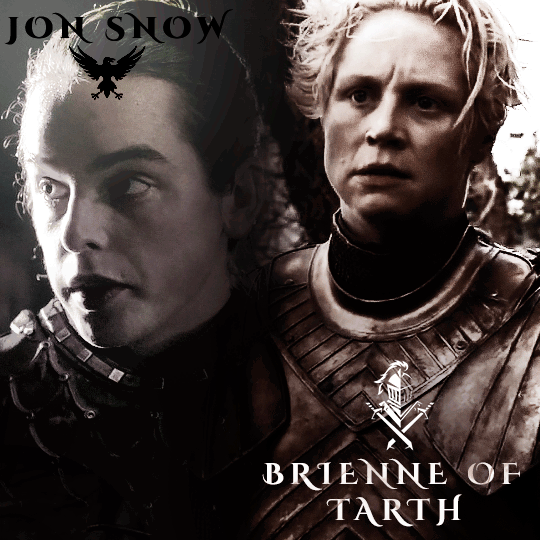
JONSNOWFORTNIGHTEVENT2023
DAY 4: UNSUNG CONNECTIONS 🔍🧩: Brienne of Tarth
At first glance, these two characters appear quite dissimilar. While one is confined to the Wall in the northernmost region of the Seven Kingdoms, the other is journeying through the Riverlands. Their paths belong to separate storylines, and there is no certainty that they will ever cross paths. Even if fate brings them together, their meeting is unlikely to significantly influence each other's narrative arcs.
It is evident that these two characters were not intentionally designed to follow parallel journeys or serve as foils to each other. Nevertheless, despite this lack of deliberate planning, they share certain fundamental similarities as noble-hearted underdogs.
Outcasts:
Both of these teenagers are introduced as social outcasts, never truly feeling like they belong in their respective homes. Jon, being born as a bastard, faces a particularly challenging situation among his siblings. Although he grows up alongside them, his status is deemed inferior, and his future prospects are limited. Being constantly aware of his disadvantaged position, which he has no control over, he also carries the burden of society's stigma towards bastards. In the eyes of Westerosi society, bastards are often associated with lust and deception, and their character is unfairly judged as wanton and treacherous.
“Bastard children were born from lust and lies, men said; their nature was wanton and treacherous."
Jon's mistreatment and sense of being unwelcome in his own home are vividly demonstrated through the way his father's wife treats him. While the reasons behind her behavior may be complex and subjective, it is undeniable that she plays a significant role in making Jon feel like an outsider.
In both cases, these characters' struggles are rooted in the way society perceives and treats them, forcing them to navigate the world as noble-hearted underdogs who defy unfair judgments and prejudice.
As for Brienne, she faces the unfortunate reality of not being considered conventionally attractive in a society where noble women are primarily valued for their ability to secure advantageous alliances through marriage. Brienne's appearance makes her an undesirable bride, as exemplified by the hurtful rejection she experiences from one of her potential suitors, Ser Ronnet Connington. Consequently, she becomes a target of pity and disdain within her community. Similar to Jon, Brienne endures the consequences of something she was born with and cannot change. The way both of these young individuals are treated is undeniably unjust.
Ironic Nicknames:
Both Brienne and Jon are indeed given ironic nicknames that serve as reminders of their perceived shortcomings.
"Brienne the Beauty, they name her . . . though not to her face, lest they be called upon to defend those words with their bodies." Catelyn II
Brienne is mockingly called "Brienne the Beauty," but it is done discreetly because anyone who dares to say it to her face would face the consequences of physical confrontation. This sarcastic title emphasizes society's mockery of her appearance and the unfair beauty standards imposed upon noble women.
"That is a longsword, not an old man's cane," Ser Alliser said sharply. "Are your legs hurting, Lord Snow?" Jon hated that name, a mockery that Ser Alliser had hung on him the first day he came to practice. Jon III, AGOT
Similarly, Jon loathes the name "Lord Snow," a cruel nickname bestowed upon him by Ser Alliser during his initial training at the Wall. This derogatory name is a constant reminder of his status as a bastard and highlights the disdain he faces from others due to his birthright.
In both cases, these ironic nicknames exemplify the hurtful treatment and prejudices both characters endure, reflecting the challenges they must overcome as noble-hearted underdogs in their respective worlds.
Failing Institutions:
Both Jon and Brienne yearn to escape their homes, seeking refuge as knights, skilled with a sword. However, their aspirations do not lead to the solace they envisioned. Brienne, venturing into the male-dominated sphere of Renly's Rainbow Guard, faces discrimination from fellow knights who perceive her gender as a hindrance in a war expedition. Similarly, Jon's dreams of noble protectors are shattered when he realizes the Night's Watch is not the idyllic brotherhood he had imagined. Many of his new comrades are far from the noble figures he had hoped to find.
These disillusioning experiences mark a significant transition for both characters, propelling them from adolescence to adulthood. Stuck in less-than-ideal circumstances, they are forced to grapple with their identities and find their place in a world that proves harsh and unforgiving. As they navigate these challenges, their journeys pave the way for personal growth and maturity. The trials they endure and the realities they face shape them into more resilient and self-aware individuals.
The Agony of Love's Demise:
Both Brienne and Jon find themselves cradling their beloveds as the life slowly drains from their bodies, leaving them engulfed in heartache and despair.
Brienne's arms become the final refuge for King Renly, the man she loved deeply. His armor stained with blood, a vivid reminder of the violence that stole him from her. Despite her unwavering strength, she cannot save him from his tragic fate, and she must bear witness to the life slipping away from the one she held dear.
For Jon Snow, the woman he loved, Ygritte, rests in his embrace, her life slipping through his fingers like sand. He clings desperately to hope, vowing that they will return to their cave together, but the reality of her passing shatters him, leaving him to grieve the loss of his first love.
In these heart-wrenching moments, both Brienne and Jon are confronted with the devastating toll that love's demise takes on the human soul. The agony of watching their beloveds slip away leaves an everlasting mark on their hearts, forever altering their paths and shaping their characters.
Compassionate:
Despite the multitude of injustices they have faced, Jon and Brienne do not succumb to bitterness or resentment. While struggling to find their place in the world, they do not harbor hatred towards those who seemingly have it easier. Jon does not resent his siblings for their legitimate status, and Brienne does not hold grudges against those considered conventionally beautiful. Instead, they demonstrate remarkable compassion and empathy, even towards those who have not treated them fairly.
Jon's act of comforting Lady Catelyn during Bran's farewell and Brienne's kindness towards Jaime, despite his previous rudeness, exemplify their belief in goodness within a world filled with nihilism. They hold onto their ideals and maintain a sense of morality despite the harshness they have endured since their childhoods.
Their ability to remain realistic while acknowledging the world's harsh realities showcases their maturity and resilience. Rather than being delusional, they are aware of the challenges and injustices that surround them. Their experiences have shaped them into compassionate and understanding individuals, and they choose to rise above the bitterness that could easily consume them. Instead, they stand as beacons of hope and kindness in a world that often lacks it.
Mentors and Protectors:
Despite their own struggles, both Jon and Brienne exhibit a strong sense of empathy and a willingness to help others who face challenging situations. They take on the roles of mentors and protectors for those in need, demonstrating remarkable maturity and selflessness, even at a young age.
Jon's nurturing and protective nature are evident through his interactions with Arya and Sam. He becomes a source of comfort for Arya, offering her support and teaching her how to defend herself. His gift of Needle and initial swordfighting lessons empower her to face the difficulties ahead. Jon's friendship with Sam leads him to intervene and shield Sam from bullies, showcasing his sense of loyalty and defense of those weaker than him. Furthermore, as a seasoned member of the Night's Watch, Jon dedicates himself to training new recruits, imparting his knowledge to teach them the art of self-protection.
Similarly, Brienne's compassionate nature is exemplified when she takes Podrick under her wing during her quest. She not only agrees to let him accompany her but also takes it upon herself to improve his swordsmanship. This selfless act showcases her commitment to helping others grow and gain the skills necessary to protect themselves.
Both Jon and Brienne's mentorship roles and their willingness to stand up for others reveal their inherent goodness and sense of responsibility to aid those in need, even amidst their own struggles. Their actions go beyond their personal experiences, and they use their strength and knowledge to positively impact the lives of those around them.
Exemplars of Chivalry and Duty:
Brienne and Jon stand as shining examples of their respective institutions, embodying the true essence of chivalry and duty.
He could have tried, Brienne thought. He could have died. Old or young, a true knight is sworn to protect those who are weaker than himself, or die in the attempt. Brienne VI AFFC
Brienne, guided by the principles of knighthood, contemplates the essence of a true knight. In her musings, she acknowledges that a genuine knight is bound by the solemn oath to protect those who are weaker, even at the risk of their own life. This profound dedication to the code of chivalry underscores her unwavering commitment to the values she holds dear, making her a paragon of knighthood.
"Are you certain that I have not forgotten some? The ones about the king and his laws, and how we must defend every foot of his land and cling to each ruined castle? How does that part go?" Jon waited for an answer. None came. "I am the shield that guards the realms of men. Those are the words. So tell me, my lord—what are these wildlings, if not men?" Jon XI ADWD
Jon Snow, as the Lord Commander of the Night's Watch, is equally dedicated to his sworn duty. When faced with the question of defending the realms of men, he challenges the narrow perception of what constitutes humanity. His poignant query about the wildlings reflects his belief that even those beyond the Wall deserve protection and empathy, reaffirming his position as a true defender of the realms of men.
Both Brienne and Jon exemplify the highest ideals of their institutions. Their actions and convictions showcase the depth of their character, as they remain steadfast in upholding the values they have embraced. As paragons of chivalry and duty, they serve as beacons of honor and righteousness in their respective worlds.
The True Essence of Knighthood: Jon and Brienne as Exemplars
Ultimately, even though neither of them holds the title of a knight, and it is unlikely they ever will, Jon and Brienne embody the true essence of knighthood. The oath of knighthood, which states:
"In the name of the Warrior, I charge you to be brave. In the name of the Father, I charge you to be just. In the name of the Mother, I charge you to defend the young and innocent. In the name of the Maid, I charge you to protect all women," resonates profoundly with their actions and values.
#jon snow#asoiafcanonjonsnow#canonjonsnow#jonsnowfortnightevent2023#gif#text#meta#Brienne of Tarth#ValyrianScrolls#Valyrian Scrolls#ASOIAF#A Song of Ice and Fire#Original Post
65 notes
·
View notes
Text

French Lady Barbie, from the 1997 Great Eras Collection
It's France in the early 1800's and the name Napoleon Bonaparte is on everyone's lips. Self-proclaimed emperor in 1804, he and his beautiful wife Josephine are the leaders of French style and fashion.
French Lady™ Barbie® pays heed to the dictates of the famous emperor. Her gown is all the latest rage in Napoleon's court. Its empire styling mimics the elongated elegance of a classical Greek column, a time and period most admired by Napoleon. Its predominant color is French blue, a color much favored by everyone royal in France. The underskirt is dotted with golden Fleur-de-Lis, a long-lived symbol of French royalty.
Women of the era wore high heels on tiny feet, and often had a pair made to match every outfit. French Lady Barbie has hair gathered into a golden headpiece and her lovely face is trimmed in tiny chestnut curls. Her skin is fair, her eyelashes rooted, while her faux turquoise jewelry complements the French Blue of her gown.
Napoleon had an effect on more than fashion and style. He gave France a civil code, religious tolerance and fair taxes. During his reign, the Bank of France was founded and France enjoyed freedom of the press, rare in its long history.
While Napoleon led French armies in conquest, the beautiful, brooding music of composer Ludwig van Beethoven was heard throughout Europe. In France, artist J. L. David achieved fame and popularity as did portaitist Jean Ingres. In 1806, the Institut de France was created by combining Academie Francaise with other academies, all designed to protect and promote everything French, from art to architecture! The beautiful city of Paris began to take form and shape as the famous landmark, the Arc de Triomphe by artist Claude Clodion, was begun in 1806 and completed in 1836.
Rarely in history has one nation ever commanded so much prestige, so much success and so much style. In this magical age of Napoleon, everything the French touched rang with glory. French Lady Barbie captures this glory in her brilliance of style and sophistication. It's not difficult to close one's eyes and imagine her gracing the balls of Paris, with the cry of Vive la France, ringing in her ears.
#have i ever mentioned (and yes i have) that i am obsessed w the great eras collection#medieval lady and elizabethan queen are my top 2#i love grecian goddess too#im posting french lady bc i searched it on here and there were no doll blogs who had posted it for me to reblog#i know im a treasure to the community you dont have to thank me#barbie#dolls#barbie dolls#great eras collection#90s barbie#french history#napoleonic era#dollblr#what id give to touch her little poofy sleeves. uughghghghgh#THAT MATERIAL LOOKS SO SOFT IM OBSESSED
66 notes
·
View notes
Text
A Miracle I Chose Not to Perform - a LiS fan poem
On a surprisingly sunny and warm day in October
a genuine miracle was about to happen
In spite of the consequences of their actions
(and fitting conclusions to their character arcs)
emerging from the ocean and coming their way
the following wonderful people would be spared:
A promising young artist would be allowed
to keep making his haunting works
after just a brief three year stay
in an institution run by those
who clearly fail to comprehend
that in pursuit of real art
sacrifices must be made
Some shallow graves simply need to be filled
with whores
I mean sluts
I mean models
if truth and beauty are to be discovered
An ambitious businessman would be allowed to keep
the spirit of entrepreneurship alive
by selling his intoxicatingly enticing wares
to the most challenging customers of all – schoolchildren
And I’m sure that such a nice, hard-working man
would soon find a new, suitably young match
to replace the one he killed with his product
One that would understand
that after a hard day’s work
(and tasting his own stash)
a “man” has the right to explode into a blind rage
A devoted school principal and brave boys in blue
would be allowed to keep supplementing their incomes
(which are absolutely inadequate, when you factor in how much they care about the people they teach, protect and serve)
with envelopes coming from
a pillar of local community
for keeping the young artist’s career
under wraps
A valued member of the student body
would be allowed to teach
many a more stuck-up prudes
a lesson using her phone camera
having never been made aware
that other people have feelings too
All those wonderfully revolting things
would be allowed to happen
for a low tall Price
of just one murdered girl
What is the murder of a single girl
if it allows the putrid entrails
of a scenic Oregon town
to keep on churning
An irrationally angry girl
who had the audacity to confront
the boy who'd merely roofied her
Big deal!
He only wanted to
do something beautiful to her
and he would have
had she not unceremoniously fled
while she was still alive
How rude!
But you can’t expect class
from a scholarship kid in tattered clothes
Forgive my sarcasm dripping from the page
I will now speak plainly
The miracle described above I chose not to perform
I decided that just this once
friendship
should carry more weight
than the cruelty of evildoers
One ghoul pierced her heart
with a bullet-tipped spear
Another placed a red crown of thorns
on her forehead
Conquering her fear she didn’t cry
„Eloi, Eloi, lema sabachthani”
No, instead she handed me
the final nail
and begged me to hammer it
so that others might live while she would die
But despite her bravery
in the face of oblivion
(or perhaps because of it)
a blue-winged seraph was sent down
to defend her life
Nobody would miss her
the promising artist said
and if I had let her cross be raised
I would’ve proven him right
Nothing ever is worth someone
being murdered
Nothing ever is worth someone
dying alone, abandoned, hopeless and afraid
And for that reason
unlike two millennia ago in Palestine
expiation was denied
to those who required it the most
but deserved it not
I made sure of that
by pulling the would-be Christ of Arcadia Bay
down from her cross
Even though two nails
had already been driven
her hands, feet, heart and brow
bear no holes
My supposed crime is digging out of her heart
a bullet fired by
the promising artist
Shouldn’t the fault lie with the one
who aimed the gun and pulled the trigger?
I never claimed to be a hero
and if saving a friend's life is a sin
then I’m the greatest sinner
(and unrepentant one at that)
Once you cut out all hope
from your own friend’s heart
and you nail their body to a cross
once you’re smiling over their coffin
bloody knife and hammer in your hands
once you selfishly reduce
the light of their life
to a memory locked away
in your brain
then you can judge me
But know that
I don’t care about the verdicts
of ghouls
Isn’t it written
that whoever saves a life
is considered to have saved
the whole world?
So by digging the bullet out of her heart
I saved her world
my world
our world
the world
She was the Price to be paid
for sparing Arcadia Bay
from its fate
I refused that bargain
because who in their right mind
would pay with the world
for a town?
All the fine people described at the begininng
casual in their cruelty
banal in their evil
learnt an important lesson
(and for some of them it was their last):
sometimes hatred and disdain sown
become a Storm reaped
So on an unsurprisingly cold and stormy day in October
the miracle turned out to be
how such a tiny town could've fit
so much cruelty
before it burst at the seams
and that the seeds of the Storm
sown by its dwellers every day
took that long to yield crop
#life is strange#lis#fan poem#fan poetry#chloe price#max caulfield#pricefield#victoria chase#frank bowers#principal wells#arcadia bay#nathan prescott
21 notes
·
View notes
Text
Loki is a narcissist
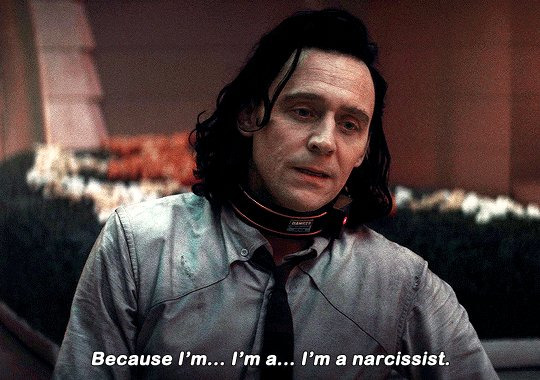
.........................................right.
You have to have five of the nine symptoms below to be considered a narcissist:
A grandiose logic of self-importance
A fixation with fantasies of infinite success, control, brilliance, beauty, or idyllic love
A credence that he or she is extraordinary and exceptional and can only be understood by, or should connect with, other extraordinary or important people or institutions
A desire for unwarranted admiration
A sense of entitlement
Interpersonally oppressive behavior
No form of empathy
Resentment of others or a conviction that others are resentful of him or her
A display of egotistical and conceited behaviors or attitudes
^ some of the wording has been changed below so it's easier to understand:
Why Loki does NOT fit every symptom:
A grandiose logic of self-importance
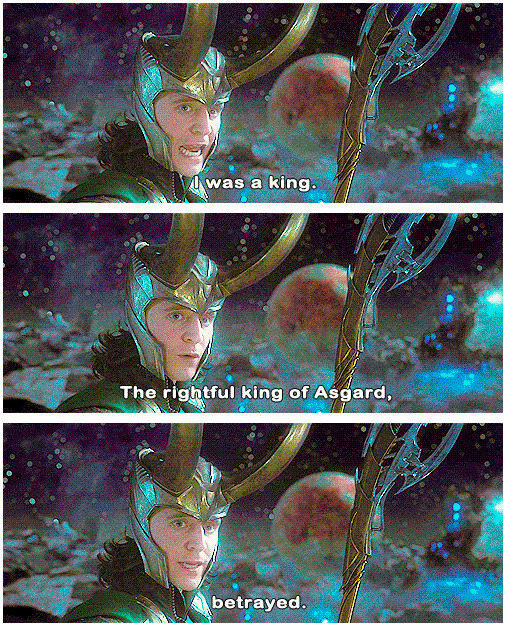
oh look at him lying about all of that. except for the part that he, was yknow, legally was the regent.

only argument for this is really the Avengers, and this line supports that ^, but Loki never showcases this level of self-importance before or after the Avengers, which is important because these patterns have to be consistent. Loki doesn't show this after the Avengers either - yes, there's the play in Ragnarok, but Loki was the prince of Asgard. There are probably 495004985094385 other plays about other royalty.
reminder this is how loki describes himself in Thor 1:
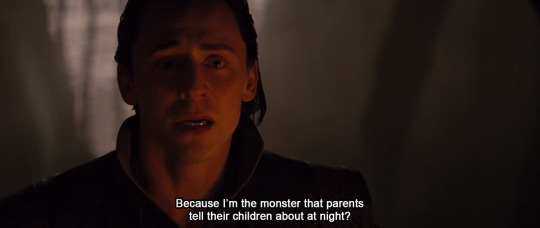
A fixation with fantasies of infinite success, control, brilliance, beauty, or idyllic love
In Thor 1, he is obessed with idyllic love from Odin, his family, and Asgard. In the Avengers he's obsessed with a throne. In the Dark World he doesn't care about it. In Ragnarok, all Loki wants is to stay alive, keep Thor alive, and keep Asgard safe. He's not fixated on a fantasy of a throne. Even in the Loki series, Loki is not fixated on a throne.
So kinda, but I'm leaning toward no.
Again, there is an argument for this in the Avengers with his fixation on "glorious purpose", but it's still not consistent.
A credence that he or she is extraordinary and exceptional and can only be understood by, or should connect with, other extraordinary or important people or institutions
people Loki actively spends time with, none of which are geniuses. Loki has never given the impression that he needs to spend time with only "extraordinary" people.
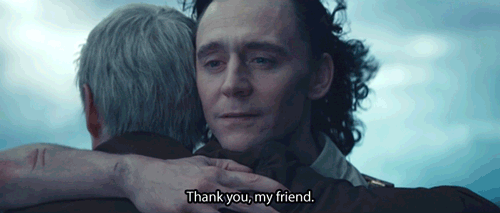
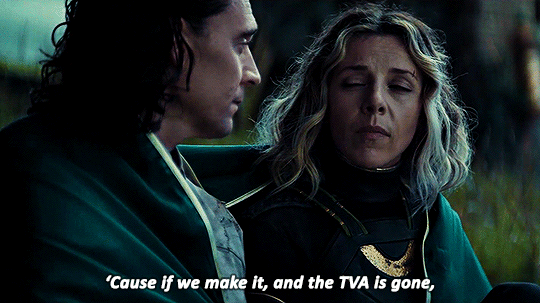

A desire for unwarranted admiration
Okay. Loki has the play in Thor 3, but he literally did almost die for Thor. And yes, it is probably unwarranted admiration/exaggeration, but again, not a consistent pattern. Plus it's a play. It's supposed to be entertaining and Loki intentionally wrote it to mock himself?
Thor 1: no
Avengers: no. He doesn't demand admiration for anything he does.
Thor 2: no
Thor 3: yes, sort of.
IW: No.
Loki series: no.
A sense of entitlement
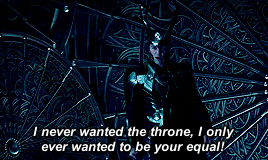
again, argument for the Avengers Loki, yes--the whole point of his villain arc in A1 is that he feels entitled to a throne. But that is not consistent. Loki defends his actions in TDW by saying that he was "giving truth to the lie he was told his entire life", which ISN'T a "I deserved a throne!!!!!" and more so "identity crisis part #4325235235"
is interpersonally exploitative, i.e., takes advantage of others to achieve his or her own ends
Yeah. This one is a solid yeah. Reminder, 1/9 doesn't make a narcissist though.
Thor 1: lied to Thor to keep him on Earth so he could manage the Jotunheim disaster
Avengers 1: mind control
TDW: removed Odin from the throne
Thor 3: the Sakaar mess
Loki series: did attempt to manipulate Mobius several times to not die and Sylvie once to teach him how to enchant.
No form of empathy
Yeah, that's Loki. Empathy-free guy.
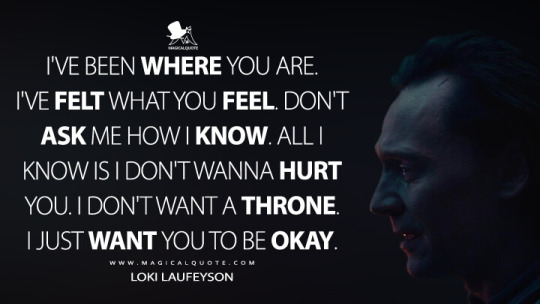
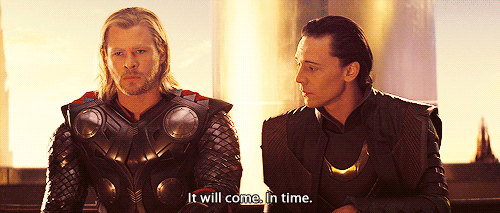
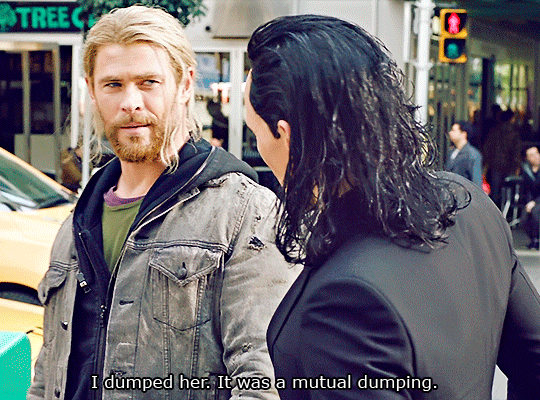


is often envious of others or believes that others are envious of him or her*
*reminder that SIF not loki SIF is the one who says that Loki has "always been jealous of Thor"
actually Loki:

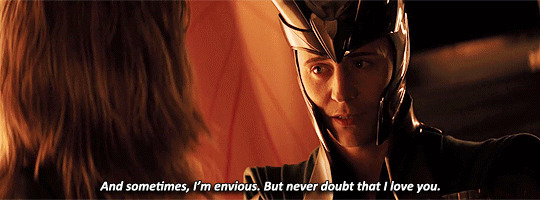
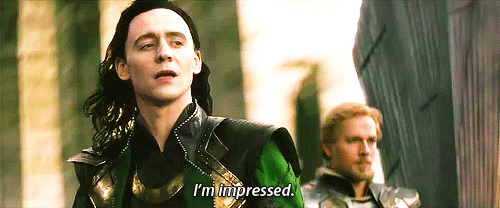
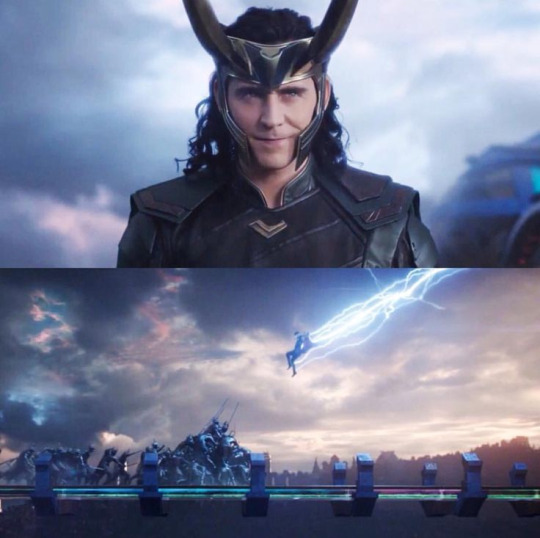
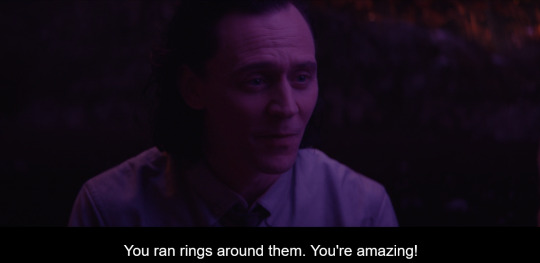
shows arrogant, haughty behaviors or attitudes

^ Loki's explanation for why he tried to get Thor's coronation delayed
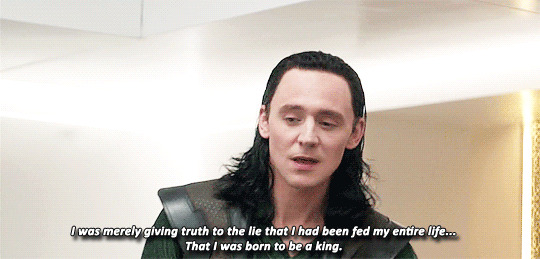
^ Loki's explanation about Avengers 1
like yes, Loki does show arrogant/haughty behaviors, but -- outside of the Avengers -- I don't really see that being the case for Loki long-term.
I think that someone could easily make the argument that Loki in the Avengers shows npd-like behaviors, but Loki as a whole in MCU isn't a narcissist. He's complicated, but not in an npd kind of way. And it would be fine if he did have npd, that doesn't inherently make him evil, but he just...so clearly doesn't have that.
89 notes
·
View notes
Text
Finished Stories Masterlist
Dollhouse
About a passionate doll enthusiast, keeping a whole house full of human dolls. (Set in the same universe as Sweet as Sugar.)
tw noncon bodymod, captivity, lady whump (both whumper and whumpee), multiple whumpees, dehumanisation, major character death
ending: bittersweet/hopeful
Under the Bell Jar
About a tiny whumpee trapped under a bell jar.
tw tiny whump, captivity, driven halfway to madness
ending: unhappy
Killing, Stalking... Whumping?
About an average whump enjoyer tracking down their favourite blogger and getting more than they bargained for.
tw DEAD DOVE DO NOT EAT, noncon, pet whump, gore, dehumanisation, torture, major character death
ending: unhappy
SPK canon content
Alternate ending to KSW, with a rescue and recovery.
SPK AUs
AUs of the AU.
Glitching
Interactive red room whump with the antagonist of KSW, Seth Menderita, as the star of the show.
tw DEAD DOVE DO NOT EAT, torture, red room setting, reader's pov, heavy gore, potential major character death
ending: multiple, choose your own version
Homewrecker
About a poor soul getting stuck in the spider web they had just managed to free their friend from.
tw constant manipulation and gaslighting, lies, medical whump, murder
ending: unhappy
At my Beck and Call (Arc 1)
At my Beck and Call (Arc 2)
About a vampire finding their new favourite toy in an unexpected alleyway — he's not going back in the office with his mind intact.
tw vampire whumper, mind control, kidnapping, captivity
ending: dubious
Discontinued Stories
The Institution
About a group of musicians trapped in a prestigious school, forced to perform in front of the whole world while trying to survive in rehearsal.
tw pet whump, human trafficking, murder
Seven Minutes in Hell (archive)
About a demon and his stolen incubus boytoy.
tw DEAD DOVE DO NOT EAT, pet whump, murder, torture, captivity, multiple whumpers
Accountability
About a miserable man finding himself in a situation where his obedient nature could actually benefit and save him.
Sweet as Sugar
About a successful and wealthy businesswoman and pet trainer getting her hands on more than she anticipated. (Set in the same universe as Dollhouse.)
tw pet whump, lady whumper, captivity, human trafficking
Crack Whump I Don't See Myself Touching Again
Itty Bitty Paw Paws
About a catboy whumper and his prey.
Deal With the Devil
About the literal Devil and their human plaything.
tw heavy torture, religious themes
Got Under Your Skin
About a demon finding their own fallen angel.
tw body control/forced to obey, religious themes, blood parasite thing (u'll get it if u read it)
Feelings Over Facts <3
About a pitiful and spiteful little man being held captive by an unusually obsessive captor.
tw captivity, obsessive/creepy whumper
31 notes
·
View notes
Text
[Draft] Why Roadside Picnic is a timeless masterpiece and why everyone missed the point
(DRAFT NOTE: Otherside Picnic and PAFL are tagged because I intended to conclude this essay by explaining why I think those works, ostensibly inspired by R.P., don’t understand and fail to capture what makes the novel so powerful. My writing never got to that point, but it might still be of interest to fans of Otherside Picnic and PAFL, so I’ve kept the tags.
If I ever manage to somehow finish this, I’ll take it down and replace it with the full version.)
ESSAY START:
With that needlessly provocative title out of the way, I hope people are still here and willing to listen as I try to explain myself:
[SPOILERS FOR THE WHOLE BOOK, GO READ IT IF YOU HAVEN’T DONE SO YET]
At its very core, Roadside Picnic is a character study. It acts as philosophical and social commentary too, but a vast majority of that is delivered and explored through Redrick’s character arc.
The sci-fi stuff which everyone loves referencing, and which every adaptation and “inspired” work can’t help but include: the Zone, the artefacts, bolt tossing, Mosquito Manges - none of that matters. You could replace it with magic, or dragons, or some other arbitrary plot device - it just needs to be beyond human understanding and have no clear explanation or origin, to allow for the ideas discussed by Noonan and Dr. Pillman in Chapter 3. This basic premise is all you need to discuss xenology, human psychology, “what’s a rational being”, how insignificant we are in the universe, etc.
All the other details are either little tid-bits of worldbuilding, window-dressing, or serve a specific narrative purpose. Witches’ Jelly could be any “super dangerous substance”, because what matters is not that it eats your bones, what matters is that Redrick sells it to a shady dealer, betraying the morals he espoused in Chapter 1:
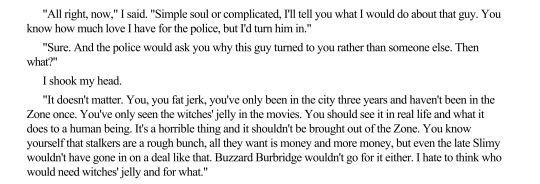
All of these objects aren’t just “cool artefacts”, they’re tools for the Strugatskys to get across their themes.
And those themes are... Well, that’s harder to summarise. The main theme of the story seems to be about how economic circumstances and crises in one’s personal life can rot a person’s moral compass and kill their faith in the possibility of a better world. The events of the story turn someone like Redrick - an honest worker who believes in Kirill’s promises that science has the potential to save humanity - into an evil hypocrite, a murderer who lies to himself to justify his reprehensible actions. The question asked of the audience is “how responsible is Redrick for his own fate”, while the ending asks “will any of it amount to anything”?
To be clear, Redrick is a BAD person. By the end of the book, he has quit his job at the Institute, sold Witches’ Jelly to shady 3rd parties (which ended in a laboratory accident that killed 35), cheated on his wife (with a woman he supposedly despises) and murdered an innocent kid. He even draws sadistic pleasure from the emotional pain he will inflict on Burbridge by killing his son, savouring the irony of Burbridge being the one who kept encouraging him to take some newbie to the Meat Grinder:

But he wasn’t always like this. At the start of the story, he is cynical and rough, but he has principles. Like already mentioned earlier, in the excerpt where Noonan tells him about someone looking to buy Witches’ Jelly, he even goes as far as saying that he’ll work with the police to turn them in. The same police which, earlier in the chapter, stopped him in the street because they profiled him and assumed he was up to something:

Redrick has done his time in prison, gotten an honest job (yes, I know that he says that he still makes "a few bucks on the side”, but he’s actually relieved when he hears they’ll be walling off the Zone because it’ll mean “less temptation”. He wants to make money as a decent citizen), and he’s still being treated like a criminal and stopped by the police on-sight. And despite this, his fear of what the wrong person might do with Witches’ Jelly is so strong, he’s willing to go to them and report the buyer.
And this rejection of his prior Stalker persona is deeper than just getting a job at the institute and being willing to cooperate with police. When Kirill assumes that Redrick suggested getting the Full Empty as a ploy to sell his services, at first, Redrick doesn’t understand what he means. When he does, he feels outright insulted:

When he finds out about Kirill’s death, he is devastated, but notably, this sorrow quickly turns into a hatred of the systems which throw young men to their deaths for money. He curses Ernest for profiting from this exploitation. A key scene is when he hands Creon (a young man who just arrived in Harmont and wants to become a Stalker) a wad of cash and urges him to go back to Malta:

Another pillar of Redrick’s character is the fact that he loves and is loyal to his fiancée, Guta, despite her family being openly antagonistic towards him - not just because of his criminal past, but the fact that he’s been afflicted by the Zone:

He marries her at some point after this.
Most importantly, he actually has a purpose. This is shown when he is pestered by the emigration agent, as he makes a speech about how Harmont is a “hole into the future”, which will change life around the world for the better:
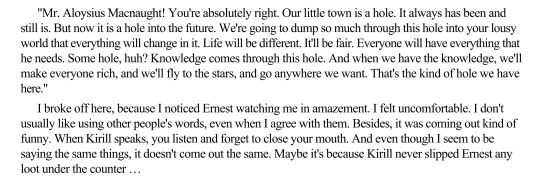
The crucial detail here is that the one who inspired him to think this way is Kirill. Redrick is always portrayed as cynical and bitter, so this high-mindedness is not coming from somewhere within him - it’s external. He’s drawing inspiration from the idealistic, honest people around him. So when Kirill dies, it is not merely the death of a close friend. It is the death of Redrick’s faith, his hope in the future. He even says “How will I get on without you?”:

Basically, Chapter 1 sets-up Redrick AT HIS BEST, so that the story can send him on a downward spiral in every chapter that follows.
Chapter 2 has several important developments, and it marks the start of Redrick’s moral decline. Before getting into that, though, I’d like to draw attention to another part of Redrick’s moral compass which is highlighted - his hatred of Burbridge and, more importantly, his hatred of Burbridge’s daughter, Dina.
Buzzard Burbridge embodies the most reprehensible, slimy aspects of being a Stalker. He is a selfish profiteer, willing to sacrifice his comrades and leave them to die just so he can get away with the loot. Redrick hates Burbridge, and, very importantly, believes himself to be better than Burbridge:

Redrick hates that Burbridge has no regard for human life, and this hatred applies in equal measure to Dina. When Dina tells Redrick that he should have left Buzzard to his death, he slaps her in the face:

This is not done out of sympathy for the man - Redrick hates Burbridge. What insults him is the implication that he should’ve left a comrade to their death - even a piece of sh*t comrade. He hates Dina, because even though what she says about Buzzard is true, it’s not a reason to abandon him to his death. Just like her father, she has no regard for human life.
In this scene, it’s also worth noting that Redrick is very respectful to Hamster. Hamster is the only Stalker to survive entering the Meat Grinder, supposedly saved by Buzzard. He seems to hang around the Burbridge household, possibly acting as some kind of servant, but is deformed and crippled from his injury:

The contrast between how he speaks to Dina and Hamster sends a clear message; Dina’s beauty means nothing. She’s evil, and deserves less respect than ugly, deformed Hamster.
Another key moment is Redrick’s conversation with Noonan in the café near the Métropole hotel. There, we learn why he quit working for the institute; money. He could no longer earn bonuses when expeditions to the Zone began being handled by robots:

Important here is that his salary still isn’t terrible, and the institute did not fire him. He chose to quit, because he wants a sense of freedom, of not being bossed around, and the money to splurge on things (like cigarettes) and have peace of mind. This is aptly summarised in the line “a man needs money so
that he doesn't have to always be counting it”.
Obviously, another reason why he quit is Kirill’s death. In his final, rambling monologue, Redrick admits that he hated working for the Institute, so it’s very likely that Kirill and his idealistic visions for the future were the only things keeping him there.
So, to summarise, at this stage, Redrick’s character looks more or less like this:
1) Wants to do honest work and disassociate from his criminal past.
2) Believes the world can be saved by technology from the Zone.
3) Will never sell Witches’ Jelly to dangerous 3rd parties.
4) Needs money for a basic standard of comfort and freedom from authority.
5) Won’t abandon someone to their death, even someone as bad as Buzzard.
6) Beauty doesn’t matter if, morally, you’re an awful person.
7) Loyal to his wife and daughter.
Having lost Kirill, and with him, his hope for a better future, Redrick’s new source of meaning is his wife and daughter. His purpose in life is providing for them, especially Monkey, whose condition makes her the target of bullying.
(Side note: One thing always annoyed me. Why did they call her Monkey?! That’s asking for people to bully your kid! Was it just a coincidence, or did they really name her after her birth defect? And this is an accurate translation of the Russian “Мартышка”, no weird translation problems here.)
But this new purpose - providing for his family - crashes into him hard when he’s set-up, betrayed, caught by the police, and is forced to flee. It’s then revealed that Redrick had a trump-card up his sleeve - a jar of Witches’ Jelly and an interested buyer, willing to pay the money to his wife in instalments while he rots in prison. It’s never stated how long his prison sentence is, but Redrick estimates that evading arrest (which he did to arrange the transaction) will add another year to it.
To be clear, this jar was prepared as a last resort. He clearly doesn’t want to do this. Earlier, in the Métropole, when he's asked if he managed to procure it, he lies, saying that he didn’t:

He promises to get it later, keeping Throaty interested, but not giving it to him. Later, as he’s about to make the call, he admonishes himself:

This the first major step in Redrick’s decline, where his self-interest explicitly endangers the lives of others, and he still picks himself over others.
Before moving into Chapter 3, one part which I’d like to quickly touch on is the circumstances of Redrick’s arrest. I didn’t pick up on this on my first read, but Ernest wasn’t the one who set-up the police ambush in the Borscht. The one who set up Redrick’s arrest was Richard Noonan:

At first, I was confused as to why Redrick never realised that Noonan betrayed him, but after looking at it more closely, and despite how stupid it may sound, I genuinely think Redrick was so sleep-deprived that he forgot Noonan was the one who told him to drive to the Borscht in the first place. After getting into the cab, he falls asleep and wakes up, incorrectly thinking he told the driver to take him to the bank:

Regardless, in Chapter 3, we learn that Richard Noonan is some sort of government agent, working for the Institute or with law enforcement in some capacity. His mission is to shut down the “flow of materials from the Zone through Harmont”, which is why he has been befriending Stalkers and infiltrating their social circles, monitoring them. His activities include buying artefacts from Stalkers and rerouting them to the Institute:

If you’ve been paying attention, the Stalker which Noonan mentions in the above excerpt, the one he is stringing along and exploiting for his swag, is Creon, the Maltese Stalker which Redrick tried to pay to give up on the profession and go back home in Chapter 1. He persevered, became a successful, and what did it get him? He’s not an adventurer - he’s a pawn, drowning his sorrows in booze, getting closer to death, unaware that he’s being exploited by Noonan.
The worst part of this, which is never said explicitly, but heavily implied, is that the Institute is allowing certain Stalkers to operate because real humans are better, more effective gatherers of artefacts then their officially sanctioned robots. They are supposedly cracking down on this illegal activity, but they don’t mind taking advantage of it while they can:

There’s a sickening duality to it. Officially, Stalkers are criminalised, thrown in jail, ostracised. But behind the scenes, the Institute relies on them to deliver them materials, strings them along and keeps them on their payroll.
(Side note: I’ll let you draw whatever real-life parallels you find applicable. The ones that immediately come to my mind are the US prison-industrial complex and the funding of the the Taliban, but I’m sure you can find many, many more.)
Later, we generally get to see Richard Noonan being a horrid person - beating up a subordinate for having overlooked a group of Stalkers who were sneaking into the Zone without the Institute’s awareness.
Following this, Noonan has his conversation with Valentine Pillman, where the analogy of a “roadside picnic” is used and where the book derives its title. The general message is that we’re completely insignificant. The visitation wasn’t an instance of aliens coming to contact us or conquer us - they were just passing by and accidentally dropped a bunch of their trash on us.
Of course, Pillman qualifies this by saying that this is just his personal theory, and that there is no evidence to support this, or any other interpretation. He points out that to speculate about the motives of non-human beings by applying human psychology to them is folly, and calls xenology a pseudoscience.
For how central this conversation seems to be to the book (it’s in the title, after all), I don’t actually think that it’s a particularly interesting concept. It speaks to a general existential dread many people can probably relate to, being insignificant in the face of the infinitely complex, incomprehensible mechanisms of the cosmos. But it seems quite simple and self-contained, especially compared to the layered, interconnected themes of the rest of the book. It’s quaint.
Much more interesting to me are the things we find out about the artefacts recovered from the Zone. Eternal Batteries, seemingly capable of producing infinite energy, are used to power people’s private cars. Black Sprays, little beads which one theory claims are huge swathes of compressed space, are used to decorate jewelry:
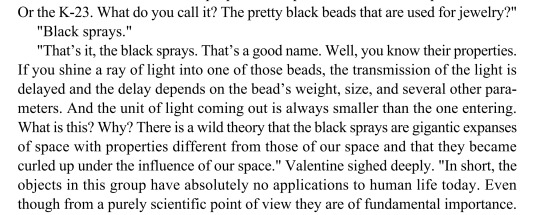
To be blunt, Kirill was wrong. The artefacts from the Zone and the research done by the Institute are not “saving the world”. They’re accomplishing almost nothing. At best, they become the playthings of the wealthy and powerful, while the working class is literally killing themselves in the Zone to acquire them. At worst, they’re causing horrible accidents and killing people, like the Currigan labs incident:
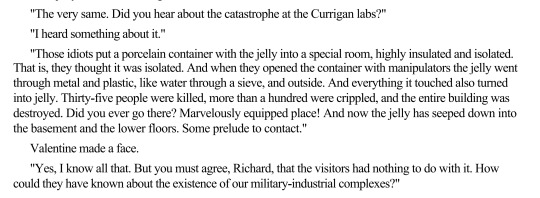
The point of this is to show that fancy new technology does not inherently uproot old systems of injustice and exploitation. Without societal change, even something as reality-shattering as an alien invasion will be slotted into the old way of things. There’s even a passing mention of more luxury accommodations being built in Harmont in response to... tourists:

I saw another Tumblr post tagged with #roadside picnic, complaining about how people are trying too hard to make every soviet novel into something political. Well, I’m sorry. IT IS POLITICAL. You’re just not paying attention. If you disagree, I challenge you to read the above passage about “the suburbs being emptied” and tell me that it’s not trying to communicate anything about the economical systems ruling Harmont.
And if I need to spell it out, the force consuming and destroying the lives of Stalkers is not “the Zone”. It’s capitalism. The characters constantly talk about greenbacks, about needing money. The reason Stalkers need to break the law and risk their lives is either because they have rent to pay, or because they want to become financially stable enough to be free from the coercion of bosses and landlords.
The entire reason Redrick betrays his moral convictions in Chapter 2 is because of money. He leaves the Institute because his job is being automated, his pay is being cut, and he doesn’t want to live paycheck to paycheck. He wants to be free. And finally, he sells the Witches’ Jelly because he has to keep his family fed while he’s stuck in jail.
And if you still think I’m just reading too much into things, seeing what I want to see, I’d like to take you back to Chapter 2 for a few notable passages. Namely, Redrick’s experiences as he is entering the luxury hotel, Métropole:

This is Redrick, talking to a cop. Yes, the police, so eager to harass him in Chapter 1, are suddenly asking him if he’s alright, offering to help, calling him “mister”. So what changed?
Well, he is wearing a suit, holding a suitcase, standing in front of a fancy hotel. They assumed he’s rich. That he’s a respectable citizen, that he’d never need to steal anything.
There’s a genius reversal here - in Chapter 1, Redrick was an honest lab worker, but was profiled and stopped by the police. In Chapter 2, while the cop is trying to help him, he’s on his way to an illegal deal with a suitcase full of contraband. He’s an actual criminal, but he’s treated with kindness, because he looks upper-class.
And if you still somehow think this is all a coincidence, I ask you - why is this scene here? Why was it written? Seriously, it’s such a random moment, a complete non-sequiteur from everything happening beforehand, and I never hear anyone talk about it. Redrick, out of nowhere, begins having strong hallucinations and has to stop to catch his breath. If the key information being conveyed here is “Redrick suffers from hallucinations”, why not just have him catch his breath and move on? Why add this random cop, trying so hard to be helpful?
The answer is simple. It’s not a “random cop”. It’s social commentary on how cops exist to protect and serve the ruling class.
In the hotel itself, we have this moment where Redrick steps into an elevator full of absurdly, comically obnoxious rich people:

If you’ve been ignoring the attached excerpts so far, I urge you to read this one. I cannot adequately summarise how seeping with contempt and revulsion these descriptions are. Redrick closes his eyes to try to “shut out” these people, to not have to look at them. The young boy is eating chocolate, of course, drooling, while his mother has the Black Sprays we talked about earlier on her necklace. This is the privileged, wealthy elite and Redrick HATES them and what they represent. It’s textbook class antagonism.
And this doesn’t just affect Redrick. Returning to Chapter 3, Noonan visits Redrick’s house and speaks to Guta, who tells him about their struggles with Monkey, whose condition had worsened, destroying most of her cognitive abilities:
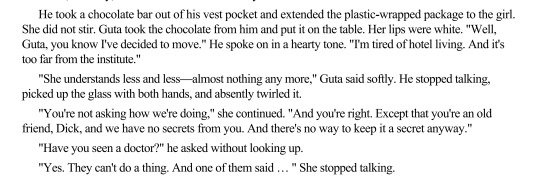
Noonan is wealthy. He’s one of the people who uses a car powered by an Eternal Battery. He lives in hotels. But more importantly:

Noonan genuinely sympathises with Redrick and Guta’s plight, and the suffering they’re going through because of Monkey’s condition. He genuinely wants to help them, and is ready to, but then remembers his boss. He remembers that his job is not to help the ones who are struggling and need it the most, but to serve the system. To label these people criminals and “infiltrate” them, monitor them, instead of simply befriending them.
Of course, Richard Noonan is an awful person. But we're almost given the sense that, given his position, he doesn’t even have an opportunity to be a good, honest person. When he genuinely feels sympathy for those he exploits, he forces himself to stop and suppresses his good nature. Because that’s what’s expected of him, what his job requires. He’s there to protect the interests of the Institute - the ruling class.
I really hope these examples adequately demonstrate what I believe to be the main political themes of the story, because I’m going to put those aside for a moment and go back to the personal, moral journey of the main character.
The only thing of note left in Chapter 3 is Redrick’s father and his reaction to news of the lab accident.
[UNIFNISHED DRAFT ENDS HERE]
(TRANSLATION NOTE: All quotations are taken from the Antonina W. Bouis translation, despite there being an arguably more accurate translation by Olena Bormashenko. This is out of habit, not preference - I’m more familiar with the Bouis translation, which made searching for quotes easier.)
(Huge thanks to Antonina W. Bouis and later Olena Bormashenko for bringing this book to an anglophone audience, to Irena Lewandowska and Rafał Dębski for translating it to Polish, and to Siergiej Rajkov and Milan Asadurov for doing the same in Bulgarian.)
#roadside picnic#stalker#otherside picnic#parties are for losers#book analysis#strugatsky brothers#My writing
121 notes
·
View notes
Text
Four male blorbos,four Hogwarts Houses
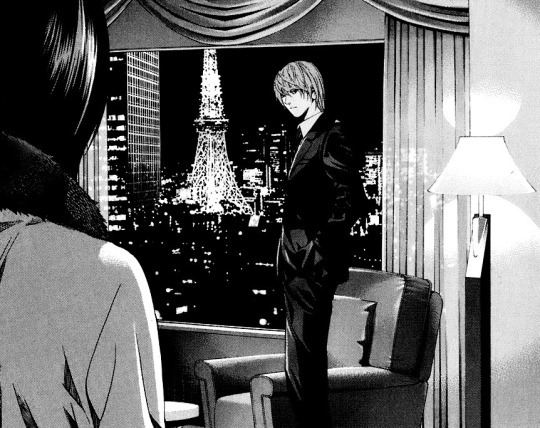
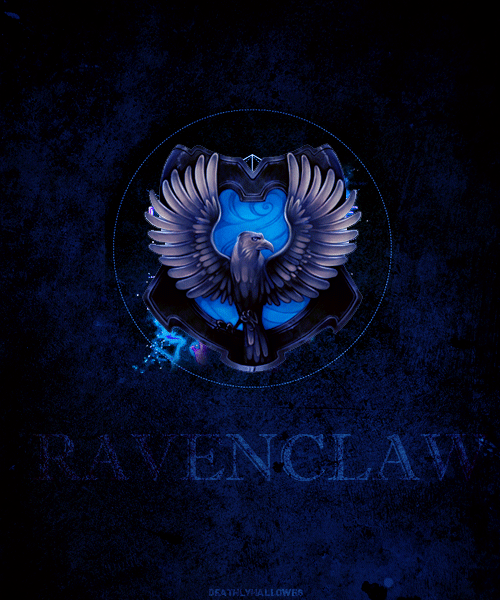
Light Yagami - Ravenclaw (I've seen this fucker being sorted in Gryffindor way too many times,but Light is such a cowardly bitch and way too prone to decieving himself. The Gryffindor in Light is at the very least 90% him emmulating Soichiro,lol).
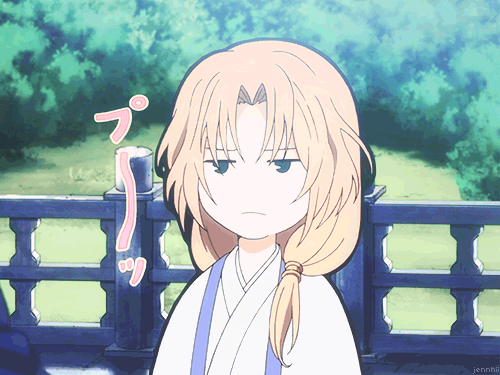

Soo-Won - Gryffindor (he has all the courage lacking in Light,and doesn't need to tell himself a truckload of lies to keep going).
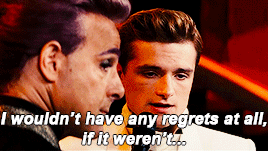

Peeta Mellark - Hufflepuff (he can fit into Slytherin too,IMO. However,I feel like he's cunning and manipulative in a Hufflepuff way).
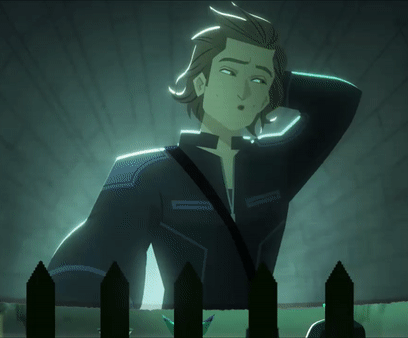
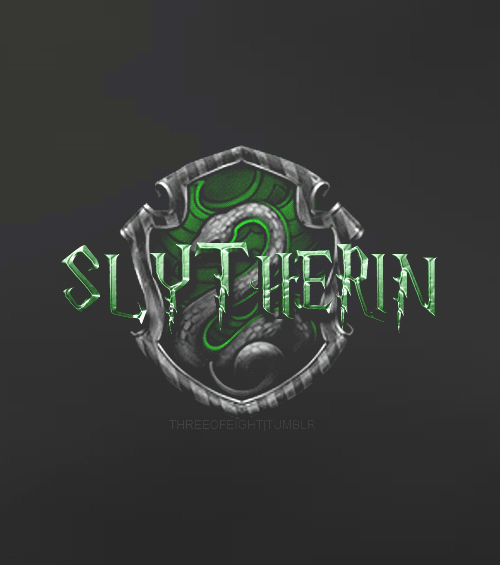
Graham Calloway - Slytherin (This shithead ain't a Ravenclaw,CS fandom,he's just Bellum's probable favourite student). A case could be made for Gryffindor,because Gray is often straightforward and bold when getting after stuff he wants/people he likes,but this is still pretty shallow,IMO. He started out as an ambitious young man wanting to make it big in his career,and his true redemption arc - no,brainwashing doesn't count because it has to be out of one's own volition - was basically him wanting to give Carmen's agency back. There was no mention of him deciding to go against VILE because the institution was evil,nor anything like that. Gray started out wanting to be rich,and ended motivated by personal loyalty.
Tomorrow,I'll make one for the girls!
#hp#harry potter#hogwarts houses#hogwarts house pride#hogwarts sorting#death note#light yagami#akatsuki no yona#soo won#su won#thg#the hunger games#peeta mellark#carmen sandiego 2019#carmen sandiego#graham calloway#graham crackle#ravenclaw#gryffindor#hufflepuff#slytherin
4 notes
·
View notes
Text
It’s a slow day at work and I could do stuff I’m supposed to or I could complain about how fucking horrible of an episode Bound is.
Ignoring the puritanical bs and slut shaming for a second. This is the episode that starts the Lionel Luthor Redemption Arc™ that is just so disrespectful. Lionel Luthor is The Asshole of the show. He’s abused his wife and child (likely would have done the same to Julian). He framed his son for murder and when it didn’t work pretended it was all done for Lex’s benefit (???). He fired a whole ass company that employed the majority of the population in this small ass town. He coerced a high school student into investigating another high school student (Chloe had a hand in that sure but she’s also a lovesick teenager with abandonment issues and low-self esteem…easy pickings for Lionel). He lied about being blind so he could spy on people?????? He gifted a married woman a very “secret affair” watch?????? He only felt bad about subjecting his child to unnecessary electroshock therapy (twice) after he realized Lex knew Clark’s secret. He traded Clark for Lex at Summerholt, subjecting a minor to an experimental brain treatment without his prior knowledge let alone his consent, so that he could get to Clark’s secret. He fully planned to switch bodies with his son, letting Lex die in his place just because Lex had him convicted for a murder he was 100% guilty off. Like…this is a Bad Dude. Lex isn’t a saint but Lionel isn’t a sinner, he’s a whole ass monster. Not even going to mention the whole Lucas thing.
Then we have the Kent parents (specifically Johnathan) defending Lex by saying he’s just doing what he’s learned from his father (re: sleeping with women and sending earrings by courier just like his father did) in one breath and then in another saying the Luthors will never change. Like hey maybe don’t group a man literally in prison for murder with his son who sleeps with an average of one rando per month. Sure the fact that he doesn’t remember then hints at self-destructive tendencies and yeah he should maybe consider therapy but he won’t because the same man in prison for murder literally “gatekeep, gaslight, girlboss”ed his one and only son into a mental institution and had his brain fried so said son wouldn’t remember anything about said murder. And Lex’s therapist was in on it so of course he’s not gonna trust therapy. Regardless, yeah Lex won’t change if he stays in this lame-ass town where you can’t do anything fun without being branded with a scarlet letter (or if his best friend keeps gaslighting him like his father does or if everyone he knows is about two breaths and a small mistake away from going all “I knew I shouldn’t have trusted Lex.” Did Lex cut off that man’s hand? Did Lex try to kill Johnathan to get to Clark? Did Lex try to kill Chloe? Nope. Not even in that one episode where everyone else did try to kill Chloe).
Anyway, back to Bound. So the Kent parents are defending and slut shaming Lex and we have Clark acting like a jealous partner who just learned about their boyfriend’s body count and can’t be an Adult about it. And then we get our patent Loft Moment at the end of the episode where Lex says some stuff about how he kind of wishes he’d been burned to death because it would save the world a lot of grief???? Like he’s clearly in some pain and distress (and really should consider therapy but again…his last therapist drugged him as part of a plan to cover up his father’s first murder) and Clark is just like :| “okay”. Come on man, he’s Superman! His “friend” is Suffering to the point where he’s duct taped to a chair, sees fire coming towards him, and literally thinks “good”????? Let one of my friends ever say that to me and I’m selling a kidney to take us to Aruba. But no, Clark doesn’t do that. And you’re telling me he trusts Lionel Luthor more than his best friend because Lionel got a holy enema and was cured of his terminal liver disease and because Lex (a single billionaire who has to go to boring fundraisers as part of his job and who has literally maybe two friends) *checks notes* had consensual sex with women and gifted them expensive ass diamond earrings. Like sure some of them got their feelings hurt but that’s not a crime, not like…idk murder. You’re telling me this isn’t like…a great motivating factor to idk be a little bit nicer to this sad little bald man with a history of being emotionally, mentally, and physically abused by people he loved and trusted (let’s not even talk about Helen).
Idk if you weren’t already 100% on Lex’s side after Shattered/Asylum, Bound is guaranteed to have you foaming at the mouth with frustration. This episode makes me want to gnaw on dry wall while crawling on the ceiling.
#smallville#tagging so ppl who are sick of hearing me talk about this trash fire of a show (affectionate?) can ignore#I promise I’m also actually doing work but yeah…this episode is frrrruuusssttttrrrraaaattttiiinnngggggg#and I know better than to watch season four but there are some fun episodes 😩#just not this one
28 notes
·
View notes
Text
One of my mutuals has been talking about their thoughts watching JJK season 2, and that made me want to share some of mine, and I don't want to wait until I can frame my thoughts as a yes-and to theirs.
My point being, if you haven't finished the Shibuya arc in either the manga or anime, the following will spoil you.
I really like Suguru Geto in the flashback, and in Jujutsu Kaisen Zero. His powers are neat, his design is interesting, his personality is fun, and his worldview is nuanced.
He wants to kill all non-sorcerers, but his reasons for wanting to do that make sense. People who can't control their cursed energy are the ultimate source of cursed spirits, which cause untold suffering to both sorcerers and non-sorcerers alike. Geto assumes that teaching most humans to control their cursed energy is impossible or impractical, and by the time of JJK0, he's willing to write off the suffering of billions in the name of a future without cursed spirits.
This is, of course, abominable; Geto's plan is a crime against humanity in the most literal sense. But you can see why someone who recognizes the problems in jujutsu society without recognizing the humanity of non-sorcerers would think that crime was a good idea.
In my ideal Jujutsu Kaisen, Yuji would overcome the decrepit jujutsu institutions, defeat Geto, and destroy Sukuna after recognizing the fundamental flaw they have in common: They all think some people are intrinsically more valuable than others. Sukuna thinks the strong should dominate the weak, jujutsu society intentionally privileges old families over new recruits, Geto doesn't think "monkeys" should get to live. And of course, all three fundamentally agree that there should be a division between sorcerers and non-sorcerers, where the former are given an elevated position (as conquerors or guardians or the ones who get to live). To beat them, Yuji needs to recognize the lies they all share and repudiate it.
But I will never get that ideal JJK, in part because Geto isn't Geto.
After the events of Jujutsu Kaisen Zero, an ancient body-hopping sorcerer named Kenjaku took Geto's body and cursed technique. He's the villain—not Geto, not Mahito, co-hosting recent arcs with Sukuna. And Kenjaku is boring.
Well, that's not fair. For a while, he's a passable imitation of Geto. But at the end of the day, he lacks Geto's substance. His problems with jujutsu society are vague gripes about a passive modern society that maintains the status quo. His plans will kill all humans in Japan, but that includes the sorcerers, and his reasons for that are either unknown or vapid.
And all he brings to the table that Geto couldn't is a thousand years of vague plots hidden in the background. He was the Kyoto blood archer's distant evil ancestor! He knew Sukuna when he was alive! He was Yuji's mom! Why? Who knows. Maybe it's related to whatever Yuji's grandpa was going to tell him. Who cares.
If I can tinfoil-hat a little:
As you may know, Jujutsu Kaisen Zero was originally Tokyo Metropolitan Curse Technical School, a self-contained series in Jump Giga. It turned out to be surprisingly popular, so Gege Akutami was asked to do a full series in the main Weekly Shonen Jump magazine.
So Gege took the setting and general premise of what is now JJK0 and created a new plot around it—one that could keep readers at the edge for hundreds of chapters, if it wasn't cancelled before then. A series that could be stretched to hundreds of chapters obviously has different needs than a series that only needs to last four chapters.
I think Gege wanted to keep Geto as a villain, but realized that his plot worked better if his villain was old enough to be Sukuna's peer. (Someone Geto's age couldn't have meddled with Yuji's conception, after all.) And Gege's solution was to literally replace Geto with a villain that was similar to Geto in some ways, but was crucially much older.
I think that sucks! I don't know what Gege is trying to do with Kenjaku that he couldn't do with Geto, but I can't imagine it was worth throwing away the Geto we had for Ancient Evil McSorcerer. I didn't feel that way when I first read the Kenjaku reveal, but the longer I've read Kenjaku do stuff and the more I've thought about Real Geto, the less I like the former and the more I miss the latter.
5 notes
·
View notes
Text






Giant volcano discovered on Mars
In a groundbreaking announcement at the 55th Lunar and Planetary Science Conference held in The Woodlands, Texas, scientists revealed the discovery of a giant volcano and possible sheet of buried glacier ice in the eastern part of Mars’ Tharsis volcanic province, near the planet’s equator. Imaged repeatedly by orbiting spacecraft around Mars since Mariner 9 in 1971 - but deeply eroded beyond easy recognition, the giant volcano had been hiding in plain sight for decades in one of Mars’ most iconic regions, at the boundary between the heavily fractured maze-like Noctis Labyrinthus (Labyrinth of the Night) and the monumental canyons of Valles Marineris (Valleys of Mariner) (Fig. 1).
Provisionally designated “Noctis volcano” pending an official name, the structure is centered at 7° 35' S, 93° 55' W. It reaches +9022 meters (29,600 feet) in elevation and spans 450 kilometers (280 miles) in width. The volcano’s gigantic size and complex modification history indicate that it has been active for a very long time. In its southeastern part lies a thin, recent volcanic deposit beneath which glacier ice is likely still present. This combined giant volcano and possible glacier ice discovery is significant, as it points to an exciting new location to study Mars’ geologic evolution through time, search for life, and explore with robots and humans in the future (Fig.2).
“We were examining the geology of an area where we had found the remains of a glacier last year when we realized we were inside a huge and deeply eroded volcano,” said Dr. Pascal Lee, planetary scientist with the SETI Institute and the Mars Institute based at NASA Ames Research Center, and the lead author of the study.
Several clues, taken together, give away the volcanic nature of the jumble of layered mesas and canyons in this eastern part of Noctis Labyrinthus. The central summit area is marked by several elevated mesas forming an arc, reaching a regional high and sloping downhill away from the summit area. The gentle outer slopes extend out to 225 kilometers (140 miles) away in different directions. A caldera remnant – the remains of a collapsed volcanic crater once host to a lava lake – can be seen near the center of the structure. Lava flows, pyroclastic deposits (made of volcanic particulate materials such as ash, cinders, pumice and tephra) and hydrated mineral deposits occur in several areas within the structure’s perimeter (Figs. 3, 4 and 5).
“This area of Mars is known to have a wide variety of hydrated minerals spanning a long stretch of Martian history. A volcanic setting for these minerals had long been suspected. So, it may not be too surprising to find a volcano here,” explained Sourabh Shubham, a graduate student at the University of Maryland’s Department of Geology and the study’s co-author. “In some sense, this large volcano is a long-sought ‘smoking gun’”.
In addition to the volcano, the study reports the discovery of a large, 5000 square kilometer (1930 square mile) area of volcanic deposits within the volcano’s perimeter presenting a large number of low, rounded and elongated, blister-like mounds. This “blistered terrain” is interpreted to be a field of “rootless cones,” mounds produced by explosive steam venting or steam swelling when a thin blanket of hot volcanic materials comes to rest on top of a water or ice-rich surface (Figs. 3 and 6).
Just a year ago, Lee, Shubham and their colleague John W. Schutt had identified the spectacular remains of a glacier - or “relict glacier” - through a sizeable erosional opening in the same volcanic blanket, in the form of a light-toned deposit (LTD) of sulfate salt with the morphologic traits of a glacier. The sulfate deposit, made mainly of jarosite, a hydrous sulfate, was interpreted to have formed when the blanket of volcanic pyroclastic materials came to rest on a glacier and reacted chemically with the ice. Breached rootless cones identified in the current study show similar occurrences of polyhydrated sulfates, further suggesting the blistered volcanic blanket may be hiding a vast sheet of glacier ice underneath it (Fig. 6).
The Noctis volcano presents a long and complex history of modification, possibly from a combination of fracturing, thermal erosion, and glacial erosion. Researchers interpret the volcano to be a vast shield made of layered accumulations of pyroclastic materials, lavas, and ice, the latter resulting from repeated buildups of snow and glaciers on its flanks through time. As fractures and faults eventually developed, in particular in connection with the uplift of the broader Tharsis region on which the volcano sits, lavas began to rise through different parts of the volcano, leading to thermal erosion and removal of vast amounts of buried ice and the catastrophic collapse of entire sections of the volcano.
Subsequent glaciations continued their erosion, giving many canyons within the structure their present distinctive shape. In this context the “relict glacier” and the possible buried sheet of glacier ice around it, might be remnants of the latest glaciation episode affecting the Noctis volcano.
But much about the newly discovered giant volcano remains a mystery. Although it is clear that it has been active for a long time and began to build up early in Mars’ history, it is unknown how early exactly. Similarly, although it has experienced eruptions even in modern times, it is unknown if it is still volcanically active and might erupt again. And if it has been active for a very long time, could the combination of sustained warmth and water from ice have allowed the site to harbor life?
As mysteries surrounding the Noctis volcano continue to puzzle scientists, the site is already emerging as an exciting new location to study Mars’ geologic evolution, search for life, and plan future robotic and human exploration. The possible presence of glacier ice at shallow depths near the equator means that humans could potentially explore a less frigid part of the planet while still being able to extract water for hydration and manufacturing rocket fuel (by breaking down H2O into hydrogen and oxygen).
“It’s really a combination of things that makes the Noctis volcano site exceptionally exciting. It’s an ancient and long-lived volcano so deeply eroded that you could hike, drive, or fly through it to examine, sample, and date different parts of its interior to study Mars’ evolution through time. It has also had a long history of heat interacting with water and ice, which makes it a prime location for astrobiology and our search for signs of life. Finally, with glacier ice likely still preserved near the surface in a relatively warm equatorial region on Mars, the place is looking very attractive for robotic and human exploration,” said Lee.
This study was conducted using data from NASA’s Mariner 9, Viking Orbiter 1 and 2, Mars Global Surveyor, Mars Odyssey, and Mars Reconnaissance Orbiter missions, as well as ESA’s Mars Express mission. Special appreciation is expressed to their instrument teams for acquiring the various datasets used in this study. Use of the open NASA Planetary Data System, Mars Quickmap, Mars Trek, and Google Mars online data visualization tools was also key in enabling the study.
IMAGE 1....A giant volcano hiding in plain sight in one of Mars’ most iconic regions. Thenewly discovered giant volcano on Mars is located just south of the planet’s equator, in Eastern Noctis Labyrinthus, west of Valles Marineris, the planet’s vast canyon system. The volcano sits on the eastern edge of a broad regional topographic rise called Tharsis, home to three other well-known giant volcanoes: Ascraeus Mons, Pavonis Mons, and Arsia Mons. Although more eroded and less high than these giants, the newly discovered volcano rivals the others in diameter, which is about 450 km (280 miles) (red dashed circle in this picture). Possible buried glacier ice is also reported under a relatively recent volcanic deposit within the perimeter of the eroded volcano, making the area attractive for the search for life and future robotic and human exploration. Credit NASA/USGS Mars globe. Geologic interpretation and annotations by Pascal Lee and Sourabh Shubham 2024
IMAGE 2....Newly discovered giant volcano is located in the “middle of the action” on Mars. Topographic map showing the iconic location of the Noctis volcano between the largest volcanic and canyon provinces on Mars. Credit NASA Mars Global Surveyor (MGS) Mars Orbiter Laser Altimeter (MOLA) digital elevation model. Geologic interpretation & annotations by Pascal Lee and Sourabh Shubham 2024
IMAGE 3....Topographic map of the Noctis volcano. The Noctis volcano does not present the conventional cone shape of a typical volcano because a long history of deep fracturing and erosion has modified it. However, upon close inspection, key features indicative of a volcano are recognizable. Within the “inner zone” delineating the highest elevation remains of the volcano, an arc of high mesas marks the central summit area, culminating at +9022 m (29,600 ft). Preserved portions of the volcano’s flanks extend downhill in different directions to the outer edge of the “outer zone,” 225 km (140 miles) away from the summit area. A caldera remnant – the remains of a collapsed volcanic crater once host to a lava lake – can be seen near the center of the structure. Lava flows, pyroclastic deposits (made of volcanic particulate materials such as ash, cinders, pumice and tephra) and hydrothermal mineral deposits occur in several areas within the perimeter of the volcanic structure. The map also shows the rootless cone field and possible extent of shallow buried glacier ice reported in this study, in relation to the “relict glacier” discovered in 2023. Noctis Landing, a candidate landing site for future robotic and human exploration, is also shown. Credit NASA Mars Reconnaissance Orbiter (MRO) Context Camera (CTX) mosaic and Mars Global Surveyor (MGS) Mars Orbiter Laser Altimeter (MOLA) digital elevation model. Geologic interpretation & annotations by Pascal Lee & Sourabh Shubham 2024
IMAGE 4....Detailed Mars data analysis revealed the Noctis volcano.
Detailed analysis of the altimetry of the region using NASA’s Mars Global Surveyor (MGS) Mars Orbiter Laser Altimeter (MOLA) data, in combination with high resolution imaging data from NASA’s Mars Reconnaissance Orbiter (MRO) High Resolution Imaging Science Experiment (HiRISE) and Context Imager (CTX), and from the European Space Agency’s Mars Express (MEX) High Resolution Stereo Camera (HRSC) enabled the discovery of the Noctis volcano. In addition to the volcano’s summit, caldera remnant, and inner and outer zones, the topographic map on the right shows the “relict glacier” discovered in 2023 and Noctis Landing, a candidate landing site for future robotic and human exploration. Credit Left: Mars Express HRSC color mosaic © ESA/DLR/FU Berlin CC BY-SA 3.0 IGO; Right: Background image: same as Left; NASA MGS MOLA digital elevation model. Geologic interpretation and annotations by Pascal Lee and Sourabh Shubham 2024
IMAGE 5....Noctis volcano in 3D. Anaglyph image showing portions of the Noctis volcano’s 250 km (155 mile) diameter inner zone of high elevation remains, and 450 km (280 mile) diameter outer zone of other remains associated with the volcano. In addition to the volcano’s summit, caldera remnant, and inner and outer zones, this 3D map shows the “relict glacier” discovered in 2023 and Noctis Landing, a candidate landing site for future robotic and human exploration. Credit Mars Express anaglyph (3D) mosaic © ESA/DLR/FU Berlin CC BY-SA 3.0 IGO. Geologic interpretation and annotations by Pascal Lee and Sourabh Shubham 2024
IMAGE 6....Possible buried glacier ice near the base of the Noctis volcano. A well-preserved volcanic lava flow and pyroclastic deposit in the southeastern part of the Noctis volcano suggest that the volcano remained active even in relatively recent times. The pyroclastic deposit presents “blisters” at its surface, interpreted as “rootless cones” or steam vents produced when the hot pyroclastic materials came in contact with H2O ice. Breaches in the pyroclastic deposit reveal light-toned deposits (LTDs) of sulfate salts, expected products of chemical reactions between pyroclastic materials and H2O ice. The largest LTD of sulfates in this area had already been described as a “relict glacier,” as it presents a wide range of morphologic traits specific to glaciers, suggesting that glacier ice might still be preserved, only protected under a thin layer of sulfate salts. By extension, the rootless cones and other sulfate deposits in this area may be blanketing even more glacier ice. Credit NASA Mars Reconnaissance Orbiter (MRO) High Resolution Imaging Science Experiment (HiRISE), Context Imager (CTX), and Compact Reconnaissance Imaging Spectrometer for Mars (CRISM). Geologic interpretation and annotations by Pascal Lee and Sourabh Shubham 2024
4 notes
·
View notes
Text
Deacon
My interpretation of Deacon is very much in the camp of, “every good lie has a seed of truth”. Got no idea if that what makes a good lie, but I think it’s a fun story telling device so idc. I never want to take away from him being a liar because it feels like it’d be a disservice to his character, but from his dialogue it feels like there’s always that grain of truth. Rather than just flat out lies, he twists the truth. The only time it ever feels flat out is when you’re supposed to doubt him, (like that he’s been to Greenland or played cards with Mr. House). It’s wacky, outlandish, and he plays it straight because that’s apart of the joke.
Because at his heart he’s a goofball! I think that Deacon shows more of who he truly is than he realizes by the mere fact that he doesn’t really know who that is anymore. If you spend sometime time as the lie, when does it become the truth?
He’s so edgy in own head, but I think that his true colors show from his actions which are usually spent either a) protecting the people he loves, or b) keeping their spirits high. He may be cynical, but he doesn’t want to be. He admires optimism and hope and surrounds himself in it, and I think some of it rubs off on him when he isn’t looking.
How can he not? The way that I can hear his voice SPARKLE after you blow up the Institute… Like the whole world has just taken on a new brighter shade. But also the way that he fights, and he fights, and he fights even in the darkest hours of the Railroad. At times I think he feels beaten down and broken, like he couldn’t get up again, but then he looks at these beacons of hope like Dez, Glory, and everyone else and he can’t help it! While he definitely has the “man loses last bit hope he didn’t know he had” moment, he doesn’t stay in the darkness. He’s magnetized to the light. Something something a lantern in the dark hehe.
Piper
I’ve fallen in love a little bit with almost all of the Fallout 4 companions, and Piper is the latest 💞. I made a conscious effort to spend more time with her on my survival play through and she’s just so charming. Bethesda knew what they were doing and they got my pansexual ass hook, line, and sinker. She’s sweet, and awkward, and passionate, and quirky, and goofy, and driven. What’s there not love?
I think my Piper is definitely a reflection of what I’m feeling like in my early twenties, except a more fantasized “country girl in the big apple vibes” version. Life is an adventure, and oh fuck being an adult with responsibility is difficult. I care so much about my community yet feel so isolated for one reason or the other. She’s fighting for justice but doesn’t have it all together yet. She trips, stumbles, and is learning.
I think the biggest roadblock for loving her character had been the contradiction of being ostensibly pro-synth but also lambasting McDonough for being a synth publicly. However, when I took a look at that as a character arc I really began to appreciate her!
Piper’s point was never to promote synth hate, and I’m so compelled by her grappling and dealing with the fact that she did. That her constant strive to deliver the unabashed truth, along with her (rightful) disdain of McDonough as a person meant that she helped the paranoia. That she made synths the bad guys rather than the Institute at large. Her seeing the toll of a full out war with propaganda from all sides, and developing another layer to her belief system. An awareness of her words and how they effect people.
Cait
I know that for some character arcs it’s about learning to be okay in your own body, on your own, but it’s SO important to me that Cait ends her story with someone absolutely smitten for her. It doesn’t matter the gender (although I’m personally partial to a girlfriend for her), she needs someone to hold her. To be patient with her. To call her out on her shit when she’s being dumb, and stand by her through the roughest parts of her journey. I want her to feel warm, and safe, and held and to be surrounded by people who love and appreciate her.
Also want her to have a complicated relationship with drugs that isn’t easy, but that she feels like she has agency and choice over. That she doesn’t need to feel ashamed for her drug use! That sure she’s got baggage but she’s so worth carrying it. I want Cait to live an easy breezy life where she’s surrounded by laughter.
(Man I guess this was less meta and more me wanting to give Cait nice things lmao).
In such a bad mood after reading something that I won’t say more about because I don’t care for engaging in internet discourse! So instead I wanna post something positive! These are just some thoughts on a couple of the companions. Definitely not the full breadth of my thoughts, but I’m kinda just not in the mood to be critical right now. Just need something good to cheer me up. Hope it can do the same for you!
My interpretations generally tend towards the sweeter more optimistic end, and I’m aware of that. But I stand by them none-the-less. I want the wasteland to become a softer place, not a harder one, and I think that while characters start out in dark places they can be lifted out of that. Fallout already spends so much time really showing off the depths of the horrors of humanity and I think that it needs to foster hope. Hope and growth give meaning to the struggle. The violence may be pointless but then we can choose to be different. Idk y’all it’s nearly two in the morning and I just want some feel goods after being absolutely STEAMED.
If you wanna join in on the fun and add your own thoughts I’d love to hear them. About these guys or any others. I just picked a random three myself. It can be angsty! I just ask to keep things respectful and compassionate in how you talk about it.
35 notes
·
View notes
Text

Rating: 3/5
Book Blurb: One of Us Is Lying meets A Good Girl’s Guide to Murder in this don’t-dare-to-look-away dark academia thriller that explores how secrets can rot an institution—and the people who uphold it—from the inside out.
Everyone wants to be a Lily.
At Archwell Academy, it’s the ticket to a successful future. But like every secret society, there is something much darker beneath the surface … sometimes girls disappear.
When four Archwell students find themselves trapped in a time loop, they must relive their worst memories, untangling the Lilies’ moldering roots and unraveling the secrets at the core of their school … before they destroy their futures forever.
Review:
Four students from the prestigious Archwell academy find themselves stuck in a time loop, reliving their worst memories... and being forced to unravel their school's secret society's secret and the disappearance of one girl...can they figure it out in time to escape or will they be trapped forever? Archwell Academy is a prestigious all-girls school, it's a school that guarantees a successful future. But beneath it's pretty cover lies a secret society known as the Lilies, a group of students where girls disappear....The story is told from four point of views:
Rory Archwell- president of the senior class and daughter of Chancellor Archwell. She wants to do whatever it takes to be on top... even if it means breaking up with her girlfriend Blythe Harris. Rory is determined to please her mother, even if it means destroying people to get her way.
Blythe Harris- She wants to beat Rory's academic record and become the first Black valedictorian in Archwell's history. She's a tech genius with a tendency to break into people's emails and snoop. Blythe wants to do anything possible that would give her an advantage.
Drew Simmons- Was forced to go to Archwell as their grandmother's one condition to get the inheritance. Drew wants to fly under the radar especially since they are being forced to go to an all girl's school when they do not identify as such. They keep everyone at arm's length... but when their roommate Charlotte, begins to discover some of their secrets and begins to go missing... Drew will do anything to hide their secrets.
Vero Martin- wants nothing more than to be an artist, she's been forced to go keep her secret artist identity under wraps as her father is running for office and this is her last chance before he sends her away. Her controversial art sets off a chain of events and brings unwanted attention... and now she has to face the consequences of her work and the damage it has created.
These four students are all connected to the Lillies secret society and the missing girl Charlotte... and when they end up in a time loop facing their worst memories, they'll have to work past it all and together to uncover the secrets that would finally let them be free. This book is a queer dark academia mystery with tons of representation. I absolutely will give this book bonus points for the representation. The book is definitely unique and I think it would make a fun read for dark academia and mystery fans. Personally, this one just felt like a bit of a miss and the overall plot felt meh at best to me. I was hoping for something a bit more, but the timeline thing just wasn't for me and I just didn't like the characters all that much. Overall it was an okay book for me but I think others will still have fun with it.
*Thanks Netgalley and HarperCollins Children's Books | HarperTeen for sending me an arc in exchange for an honest review*
2 notes
·
View notes
Text
Enneagram Characterization
I’ve recommended it a bunch, but if you do use the enneagram for characterizations I need to emphasize that the honesty of the portrayal is so much more important than the aesthetic of the type you choose for your characters.
That means picking the right type for the story you wanna tell and vice versa. there might be an impulse to be like ‘my character is hotheaded so they should be an 8′ or like ‘my character is artistic so they must be a 4′, but that mindset misses the point and diagnoses a behavior instead of their holistic personality- their core motivations and drives. realistically, a person’s core type affects so much more than behavior- their fears, their aspirations, their traumas. it’s basically 9 archetypal manifestations of the Human Id, so it does a disservice to your characters if you don’t dig deep enough to actually get it right.
I wanted to take a second to give some tips on doing that.
Step 1: Define their Number:
Don’t think of the enneagram as 9 personality “types”. think of it as 9 archetypal Lies. the idea behind the enneagram is that it’s mapping out the survival strategies that people subconsciously pick up from their childhood experiences- the ways that they trained themselves to interpret a confusing and often conflicting world. the enneagram archetypes each have a lie they tell themselves to cope.
it’s a pre-packaged “lie your character believes”.
When you’re defining their numerical type, it can be useful to take the quiz in the character’s mindset. it can also be useful to just look at what traits you want them to exhibit when healthy or under stress and work backwards from the points of integration and disintegration.


The important thing is that- all aspects of that personality type should feel applicable to your character- and none should seem disqualifying.
Step 2: Sync it to your Theme
Make sure the arc that your characters’ Lie produces matches the theme of that character’s story. you can do that by judging whether the Truth that answers the Lie is the message of the story’s theme. so, for example- with a Type-1 protagonist that I want to go through a positive change arc from a place of unhealthy belief in their Lie to enlightened acceptance of the Truth, I can’t make my theme all about how you do actually need to strive for perfection to be worthy of love- that theme should probably be something about finding their intrinsic value and personal happiness like ‘Inclination over Duty’. Or if I have a Type-8 character that’s meant to go through a corrupting arc of rejecting the Truth, my theme is probably going to be about the need to accept vulnerability and learn to depend on others, demonstrated by the consequences of the character’s failure to do so.
Step 3: Use it to build arcs.
the core-type is a launch point for conflict and development. it’s built into the theory of the enneagram- directions of integration and disintegration show how different types might react under stress or when healthy. when depicting it, remember the ‘problem’ emotions that drive each type- anger, shame, fear.
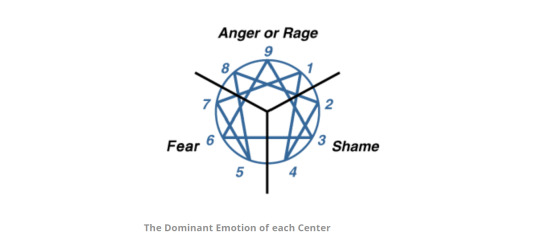
and most of all- remember the one “thing” that they want:
1. ideals
2. love
3. success
4. individuality
5. competence
6. confidence
7. freedom
8. power
9. peace
for each type, this is one thing that, if you take it away- you’ll send them into a crisis of character. each enneagram type wants this thing so badly it feels like a need it’s so pivotal to who they are and how they’ve been moving through the world their whole lives, it’s painful to rip it away from them. how your character specifically defines their thing is where you get to have your fun, but this core drive needs to be a factor of their character motivations. it’s the thing they Want but don’t necessarily Need.
Pictures from Enneagram Institute
34 notes
·
View notes